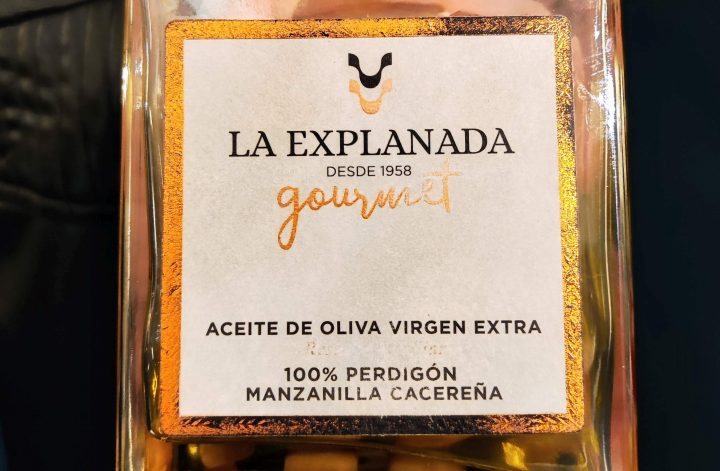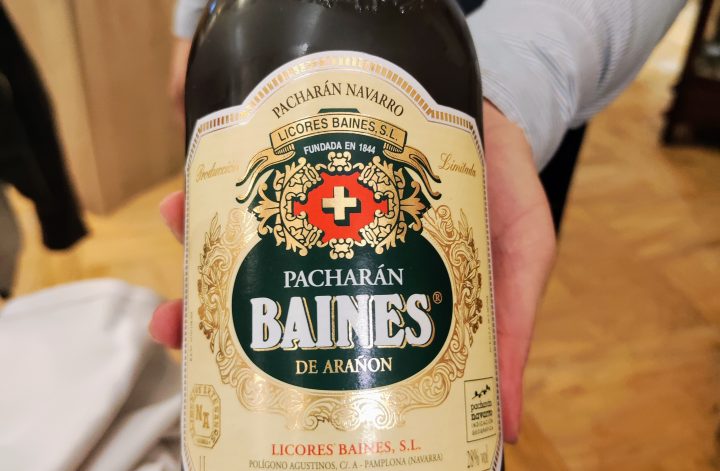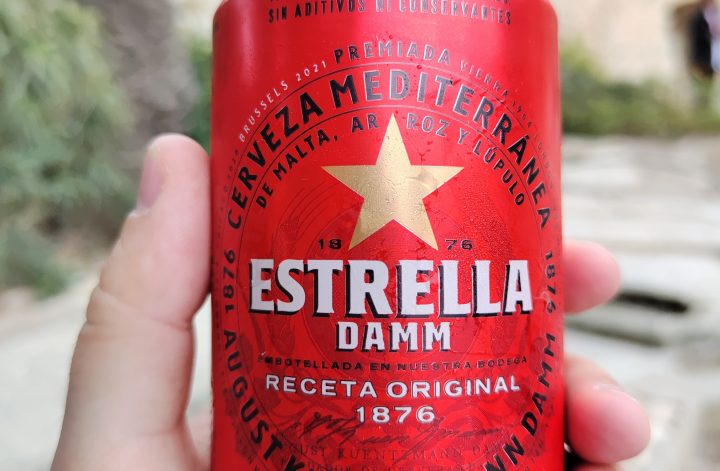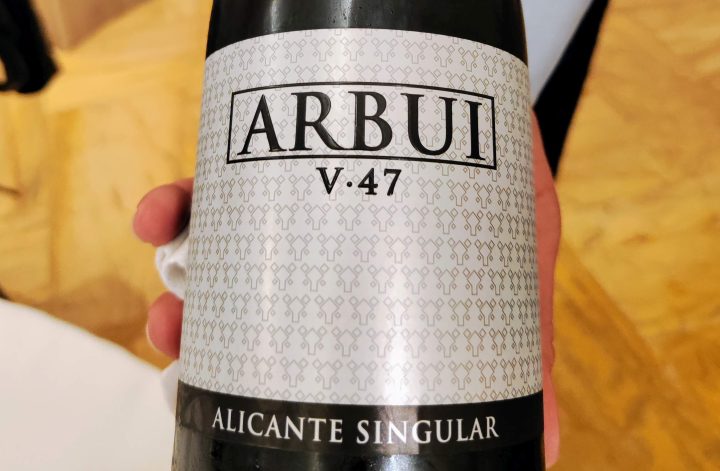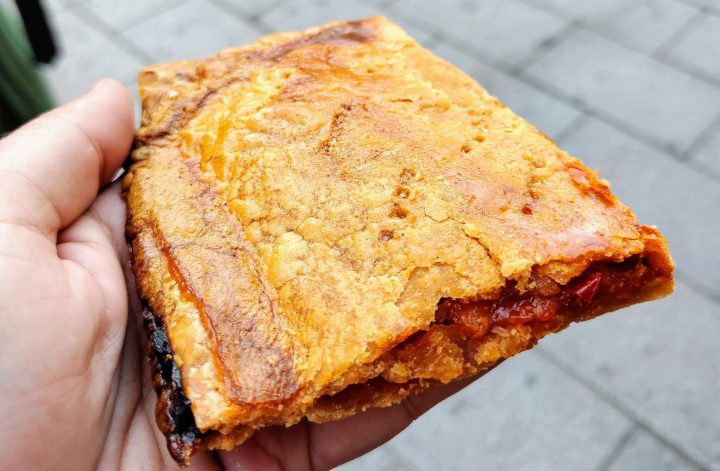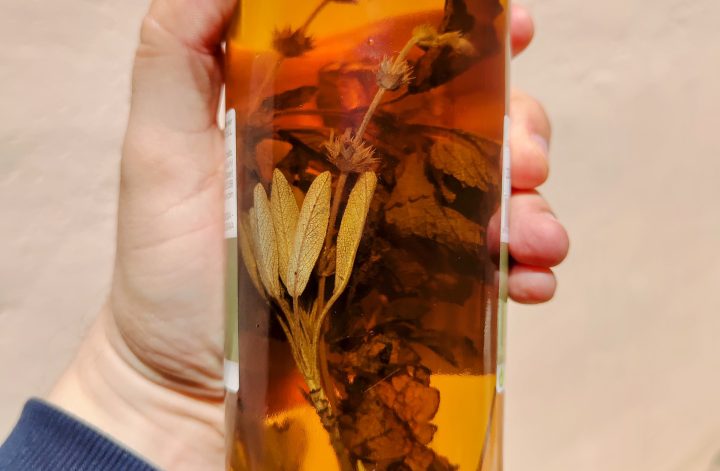Spain is the world's largest producer of olive oil. Olive oil, an inseparable part of Spanish cuisine, is produced using both traditional and modern methods from various olive varieties such as Picual, Arbequina, Hojiblanca, and Cornicabra. Notable production regions include Andalusia, Catalonia, and Castilla-La Mancha, each with its own unique flavor and aromatic profiles.
What to Eat in Spain: Typical Spanish Food and Specialties | Page 2 of 4
Patxaran: Traditional Basque Alcoholic Drink
Patxaran is a traditional Basque liqueur with a distinctive reddish-brown color and flavor. Originally made by monks, this drink combines fruity notes of plums with a pronounced anise aroma. Patxaran is best enjoyed chilled as a digestif after a meal, but the Basques also like to sip it as an aperitif or during gatherings with friends. Although it originates from the Basque Country, it is now available in other parts of Spain as well.
Erriberako merkatua/Mercado de la Ribera: The Ship-Shaped Market in Bilbao
The Erriberako merkatua market in Bilbao is an architectural gem with a unique design resembling an overturned ship. The shape of the building symbolizes the significance of the Nervión River and maritime activities for the city. The interior of the market is airy and well-organized, offering a wide range of fresh and high-quality foods, from fruits and vegetables to meats, fish, cheeses, and local specialties. The market also features bars and bistros serving traditional Basque pintxos.
Spanish Beer
Spain has a rich beer culture that differs slightly from the Czech one. Draft beer sizes range from small 0.1 liter servings (zurito), to the most common 0.2 liters (caña), up to 0.5 liters (jarra). In Spain, you can taste many interesting brands such as Mahou, Estrella Damm, Cruzcampo, San Miguel, Alhambra, Estrella de Levante, and Estrella Galicia. Whether you're in a bar, a restaurant, or on the beach, a glass of beer is always within reach in Spain.
Wines of Alicante
Alicante is a paradise for wine lovers, where the unique character and flavor of the wines arise from the ideal combination of Mediterranean and continental climates, along with diverse soil conditions. The region is particularly renowned for the Monastrell, Moscatel, and Giró grape varieties, which produce wines rich in intense aromas and flavors of dark fruit, spices, or floral notes. The quality and origin of these wines are guaranteed by two official designations - the prestigious Denominación de Origen Alicante and Vinos de la Tierra de Alicante.
Nispero de Callosa: The Golden Fruit
Callosa d'en Sarrià, a picturesque town between Alicante and Valencia, has gained fame as a major center for the cultivation of Japanese loquat, known as "nisperos." The fruit is distinguished by its sweet, delicate flavor reminiscent of a blend of peach, apricot, and plum. The designation Nispero de Callosa, a protected geographical indication for fruits from this area, signifies top-notch quality.
Coca: Traditional Valencian Pastry
Coca is a traditional Valencian pastry that boasts various shapes, sizes, and fillings. The base consists of a flat dough, onto which different ingredients are added before baking, according to regional customs, ranging from tuna and vegetables to cheese and meat. Due to this variability, there are many types of coca that visually differ. During my stay in Alicante, I tasted several variants, of which the most interesting to me were coca filled with tuna and coca filled with vegetables.
Herbero: Herbal Liqueur from Alicante
Herbero is a traditional herbal liqueur from the Sierra de Mariola mountain range in the Alicante province. It is made by macerating at least four local herbs in alcohol, which gives it a distinctive flavor and color. Popular brands include Doblón Licor de Hierbas, which I had the opportunity to try myself.
Mercat Central d’Alacant: Central Market of Alicante
The Central Market of Alicante is a fantastic place for food enthusiasts. This two-story market offers a wide range of fresh and processed foods, from fruits and vegetables to meats, fish, and seafood, as well as traditional Spanish cheeses, jamón ibérico, and regional specialties. In addition to shopping, you can also enjoy delicious Spanish food at the small bars and bistros located within the market.
Spanish Canned Goods: Delicacies at Surprising Prices
In Spain, canned goods are considered a luxury delicacy and are commonly featured on local restaurant menus. Unlike the Czech perception of cans as cheap and quick meals, Spanish "conservas" stand out for their top-notch quality and freshness. Spain is one of the world's leading producers of canned foods, which include seafood, vegetables, and game birds.
